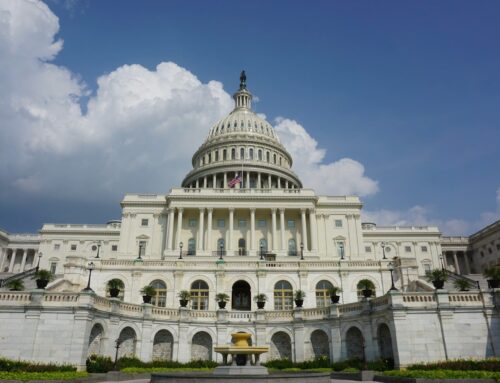With our nation suffering from a $15 trillion debt hangover, taxpayers are demanding Washington sober up when managing our tax dollars. Yet one industry refuses to acknowledge they’re part of the problem. Instead of taking steps to get onto the fiscal responsibility wagon, commercial operators on the inland waterways system are demanding taxpayers shovel even more cash to feed the industry’s addiction to taxpayer subsidies.
This insatiable appetite for taxpayer cash came to light recently when Representative Ed Whitfield (R-KY) introduced his bill, H.R. 4342. The bill calls for nearly doubling the amount of tax dollars spent on dams and navigation locks throughout inland waterways, while absolving commercial barge operators from their decades-old responsibility to cover a share of the costs. If enacted, it could leave taxpayers holding an additional $200 million annual price tag.
This, friends, is a Golden Fleece.
The inland waterways system is made up of rivers—mainly in the Midwest and East—that the U.S. Army Corps of Engineers (Corps) maintains for navigation. After more than 200 years of contributing virtually nothing to build and maintain this system, in 1978 commercial users of these waterways were finally forced to cover a portion of the costs with creation of the Inland Waterways Trust Fund. A modest tax on fuel used on the inland waterways system—it’s been 20 cents per-gallon since the mid 1990s—would be tapped to cover 50 percent of the costs for construction of new dams and navigation locks and major repairs of existing ones. The other half of these costs would be borne by taxpayers. And once the projects are built, taxpayers pick up 100 percent of the maintenance costs. At $600 million a year, this far exceeds the approximate $80 million spent from the trust fund and matched by taxpayers. But this nearly 90 percent public subsidy isn’t enough for the barge industry and those carrying their water in Congress.
Congressman Whitfield’s bill would further feed the barge operators’ subsidy habit. While users would be charged six cents more per gallon in fuel tax, adjusted for inflation, 26 cents won’t even have the purchasing power of the existing 20 cent tax established in the 1990s. And in exchange, the bill essentially eliminates cost-share. Commercial barge operators would no longer pay a dime for dams, navigation lock rehabilitations costing less than $100 million, or any project cost overruns.
This is absurd. The barge operators like to say this would be shared responsibility, but really they’re just trying to abdicate responsibility.
The commercial barge operators claim they should not have to pay for dams on the inland waterways system because they don’t use them, they only use the locks. That’s an interesting view of physics. Most dams on the system were built explicitly for the purpose of navigation. There are thousands of other dams without locks, but it’s impossible to have a functioning lock without a dam. It’s like a door without a wall. You can just walk around it, which is exactly what the river will do. In addition, no lock rehabilitation in history has cost more than $100 million. And cost overruns are all too common with Corps projects. You show us a Corps project built on time and on budget, and we’ll show you a leprechaun riding a unicorn in a Chicago Cubs World Series victory parade.
Commercial barge operators are trolling for a bailout. These users — which include barge companies owned by international companies like ADM and Cargill — want more money because they’ve failed to manage their trust fund responsibly. The Corps budget is a mess; for years it’s been built project-by-project, not prioritized by national need, but by parochial earmarks. Time and again we’ve seen Corps projects based on bad economics.
The Corps faces some real problems: an estimated $70 billion project backlog and no system of project prioritization, to name two. The Inland Waterways Trust Fund is an outdated and inefficient funding mechanism. All of this needs to be addressed yet H.R. 4342 does none of it.
At a time when the federal government’s financial resources are stretched to the limit and everything from food stamps to fighter jets face cuts, increasing an already excessive corporate subsidy is something taxpayers cannot afford. It’s time for Congress to get clean and just say no to the Riverboat Ripoff.
###
TCS Quote of the Week
“The commission should set out a menu that will allow the participants in the lame duck to actually get something done by moving forward on a bipartisan plan that can avoid the chaos of the sequester and tax hikes while guaranteeing long-term fiscal restraint and progress on the debt.” — Judd Gregg, a former governor and three-term senator from New Hampshire calling for the Simpson-Bowles commission to reconvene (The Hill)











Get Social